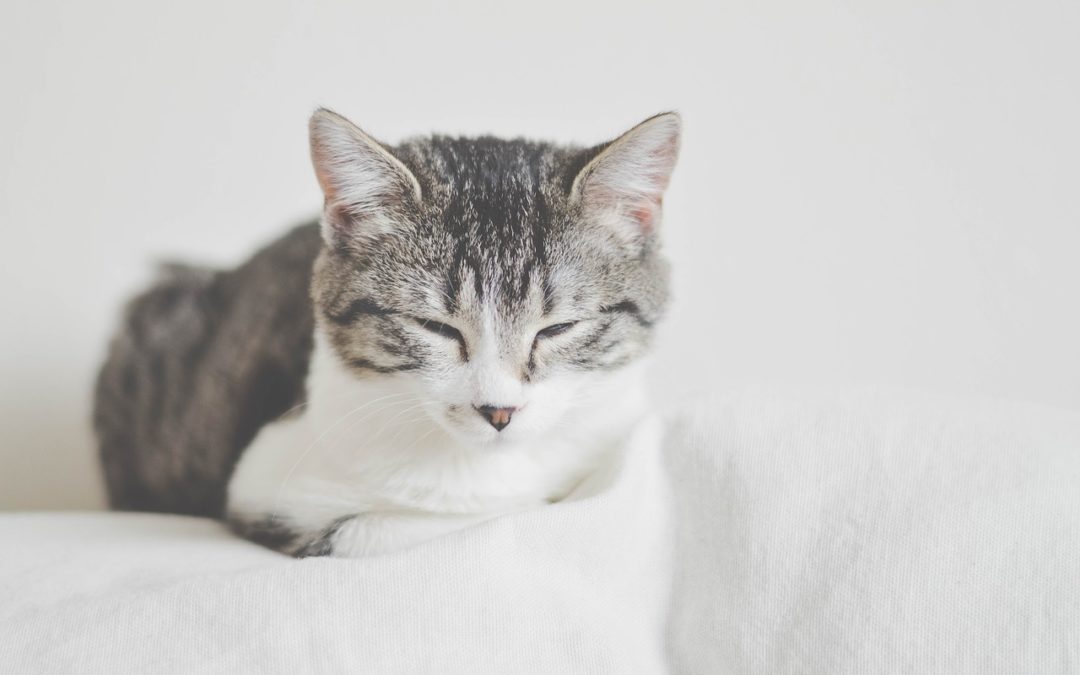Cats are curious critters, and once you bring your cat home, she will want to explore every inch of your house. Like a small child, your cat will get into things she shouldn’t unless you keep potentially harmful objects out of reach. Like childproofing for a toddler, cat-proofing your home is vital to your cat’s safety and well-being.
Household Hazards:
Furniture: Certain types of furniture are potentially dangerous to cats. Reclining chairs can trap a cat that crawls inside, so check for your cat’s presence under the leg rest or inside the recliner before returning it to an upright position. Rocking chairs can roll on a cat’s tail or foot, so make sure your cat isn’t sitting near the rocker when you decide to take a break.
Ironing boards: Irons left standing can topple over and injure your cat, so put them away when you are finished. Don’t leave hot irons unattended.
Clothes dryers: Because cats love to snuggle in small, warm spaces, they often crawl into clothes dryers if the dryer door is left open. Many cats have perished when their owners turn the dryer on without realizing the cat is inside. Close the dryer door after you remove a load of clothing to keep your cat from taking a nap in a potentially dangerous location.
Electrical cords: To keep your cat from accidentally electrocuting herself, tie up loose electrical cords or conceal them in hard plastic or rubber runners purchased at the hardware store. If your cat hogs the heat from heating vents in the winter, fit her with an elastic or breakaway collar so she can pull away if her identification tags become caught in the grate.
Small objects: Small objects, such as coins, pins, needles, rubber bands, paper clips, staples, nails, screws, yarn, thread, dental floss, earrings and other small jewelry, bells, and small balls, left lying around can lodge in your cat’s digestive tract if swallowed. Keep them safely out of your cat’s reach.
Windows: To keep your cat from accidentally falling or escaping through an open window, fasten window screens securely.
Toilets: The toilet can be a popular watering hole for a cat. A small kitten could fall in and drown or a cat could become poisoned if the toilet contains an automatic toilet bowl cleaner. Keeping the toilet lid down may prevent a feline tragedy.
Potential Poisons:
Plants: Many common household plants are poisonous to cats. They range from lily-of-the-valley and daffodils to rhododendron and hydrangea. Eating them causes symptoms ranging from stomach upset to convulsions or death. For more information about poisonous plants, see the related story “Plants Your Cat Shouldn’t Eat”. You can also contact the American Society of Prevention of Cruelty to Animal’s National Animal Poison Control Center, 1717 South Philo Road, Suite #36, Urbana, Ill. 61802 for a copy of their publication listing toxic, potentially toxic, and non-toxic plants. Enclose a check for $15 payable to NAPCC. If your cat enjoys eating greens, try supplying her with a pot of grass to satisfy her cravings.
Chemicals: Chemical cleaning products are poisonous if your cat ingests them. If using chemical cleaners concerns you, substitute safe cleaning products such as vinegar/water mixtures or baking soda. Cats are fastidious; so if you do use chemical cleaning products, wash away the residue so your cat will not get it on her feet or hair. To keep your cat from opening the cupboards where you store cleaning products, attach safety latches to the cupboard doors.
Ovens: When cleaning the oven, close the door to prevent your cat from walking on the chemical oven cleaner, and, after removing your latest culinary creations from the oven, be sure to close the hot oven door to keep your cat from burning her paws if she jumps on it.
Antifreeze: All antifreeze is poisonous to cats. Even antifreeze made of propylene glycol is toxic if your cat ingests enough of it, so keep antifreeze spills cleaned up.
Drugs: Common anti-inflammatory drugs such as aspirin and ibuprofen are extremely toxic to cats as well as analgesics such as acetaminophen (Tylenol). If your cat ingests only two regular strength Tylenol tablets within a 24-hour period, it may be lethal. Keep all medicines out of your cat’s reach and don’t let your cat play with pills that might have fallen to the floor. Pick them up and throw them away.
No house is 100 percent safe, but you can reduce the risk to your cat and create a cat-friendly environment by vigilantly keeping potential hazards at a minimum.
By: Karen Commings






